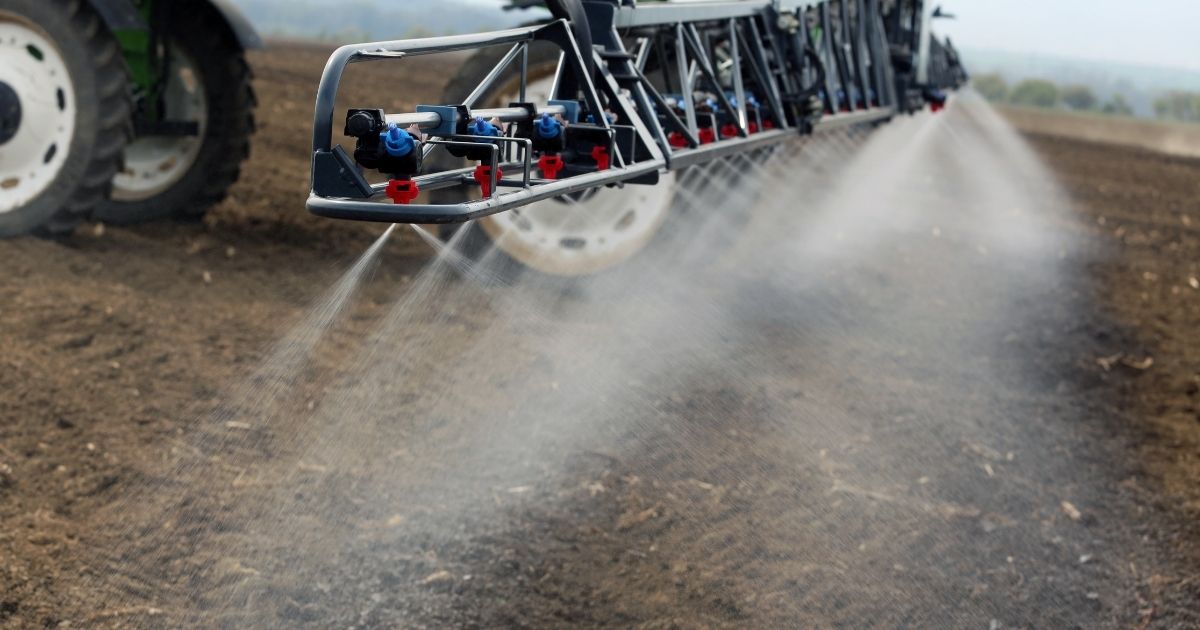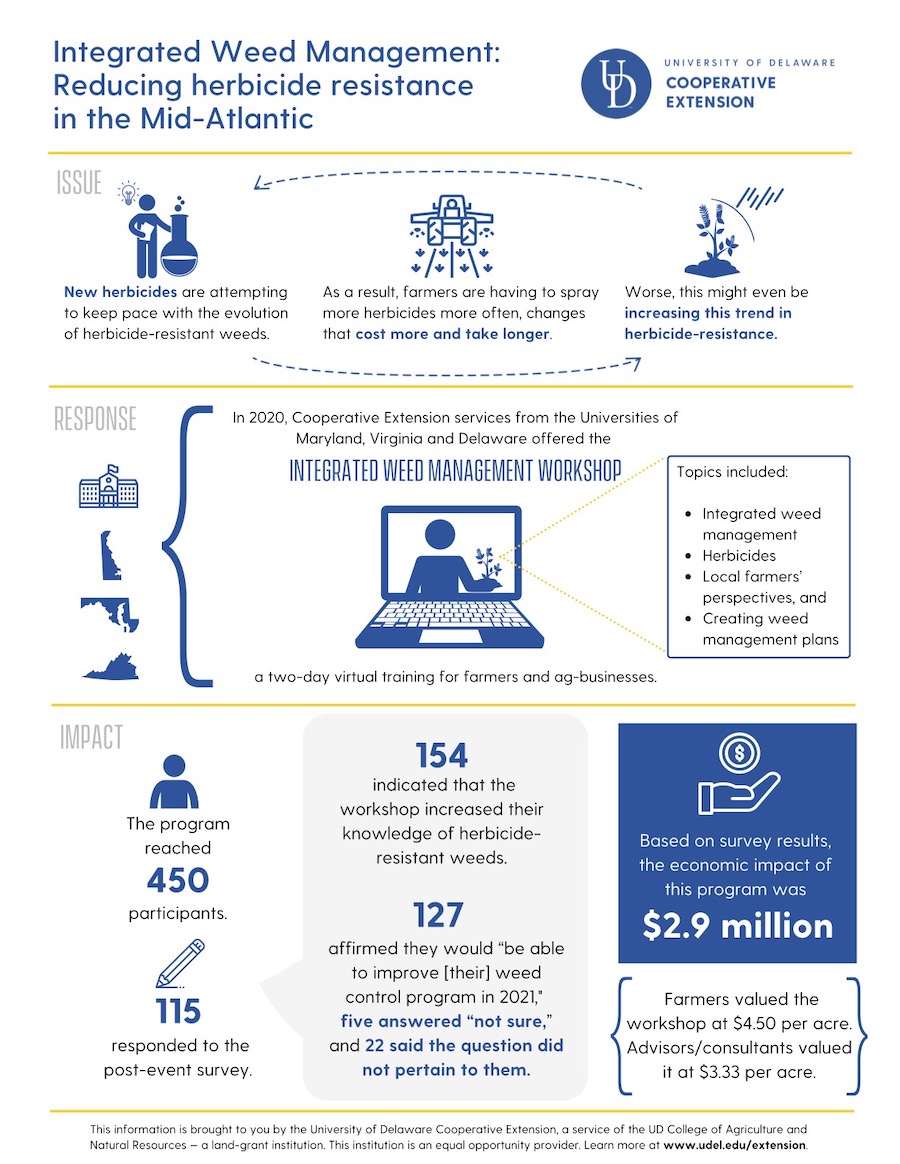
Integrated Weed Management (2020)
- Health & Well-being
-
Agricultural Programs
- Agribusiness
- Animal Science
- Beginning Farmer Program
- Commercial Crops
- Commericial Horticulture
- Delaware Soil Testing Program
- Disease Management
- Farm Vitality and Health Project
- Irrigation
- Nutrient Management
-
Insect Pest Management
- Insect Trapping Program
- IPM Hot Topics
- Commercial Field Crop Insect Management
- Commercial Field Crop Disease Management
- Commercial Fruit & Vegetable Crop Pest Management
- EIPM Implementation Projects
- Pollinators
- Research and Extension Demonstration Results
- Brown Marmorated Stink Bug (BMSB) Management, Research, and Resources
- Publications
- Pesticide Safety Education Program
- UD Plant Diagnostic Clinic
- Variety Trials
- Weed Science
- Certified Crop Advisor Program
- Poultry Biosecurity
- 4-H
-
Horticulture
- Climate Variability and Change
- Delaware Soil Testing Program
- Forestry
- Lawn and Garden
- Master Gardeners
- Master Naturalist Program
-
Nutrient Management
- Nutrient Management Certification
- Continuing Education for Nutrient Management
- Nutrient Management Planning Resources
- Commercial Nutrient Handler Resources
- Poultry Litter and Manure Management
- Turf Management
- Agriculture Notebook
- Horticulture Handbook
- Agriculture & Horticulture Handbooks
- Crop Production
- Soil Fertility
- Delaware Climate Change Coordination Initiative (DECCCI)
- Salt Impacted Agricultural Lands

Integrated Weed Management:
Reducing herbicide resistance in the Mid-Atlantic

ISSUE
Herbicide-resistant weeds were first reported in the mid-Atlantic region in the 1970s. For the next thirty years, new herbicides were discovered and marketed to provide alternative options to farmers and prevent yield loss. However, weeds have continued to evolve resistance to new herbicides and new herbicide mechanisms of action.
As a result, farmers are spraying more herbicides and making additional herbicide applications, changes that increase production cost and management. Furthermore, without incorporating non-chemical tactics for weed management, farmers are at risk for increasing this troubling trend in herbicide-resistance.
RESPONSE
In 2020, the Cooperative Extension services from the University of Maryland, Virginia and the University of Delaware planned and presented the “Integrated Weed Management Workshop,” a two-day virtual training for farmers and ag-businesses. Training topics included:
What is herbicide resistance?
How to select herbicides based on mechanism of action,
Integrated weed management for problem weeds,
Local farmers’ perspective on herbicide resistance management, and
Online exercises for creating a weed management plan.
IMPACT
Approximately 450 virtual participants attended the workshops, primarily connecting from within the Mid-Atlantic Region with additional connections throughout the United States. Out of this group, 155 individuals responded to the post-event survey. One hundred fifty-four of these participants indicated that the workshop increased their knowledge of herbicide-resistant weeds. One hundred twenty-seven affirmed that they would “be able to improve [their] weed control program in 2021,” while five answered “not sure,” and 22 said the question did not pertain to them because they do not farm or make recommendations.
Accounting for increased yield and reduced input costs, workshop participants who were farmers indicated that they placed this workshop’s value at $4.50 per acre; the advisor/consultant participants set its value at $3.33. Based on survey results, the economic impact of this program was $2.9 million overall.
RECOGNITION
This program was made possible by the Maryland Soybean Board (financial sponsor), USDA Area-Wide Project, USDA NIFA Extension Implementation Program, Delaware Soybean Board, Virginia Soybean Board, Virginia Grain Producers and Maryland Grain Producers.
The University of Delaware is an Equal Opportunity Institution and Provider. Visit UD’s Office of Equity & Inclusion to learn more.
Additional Links
531 South College Avenue Newark, DE 19716 (302) 831-2501
